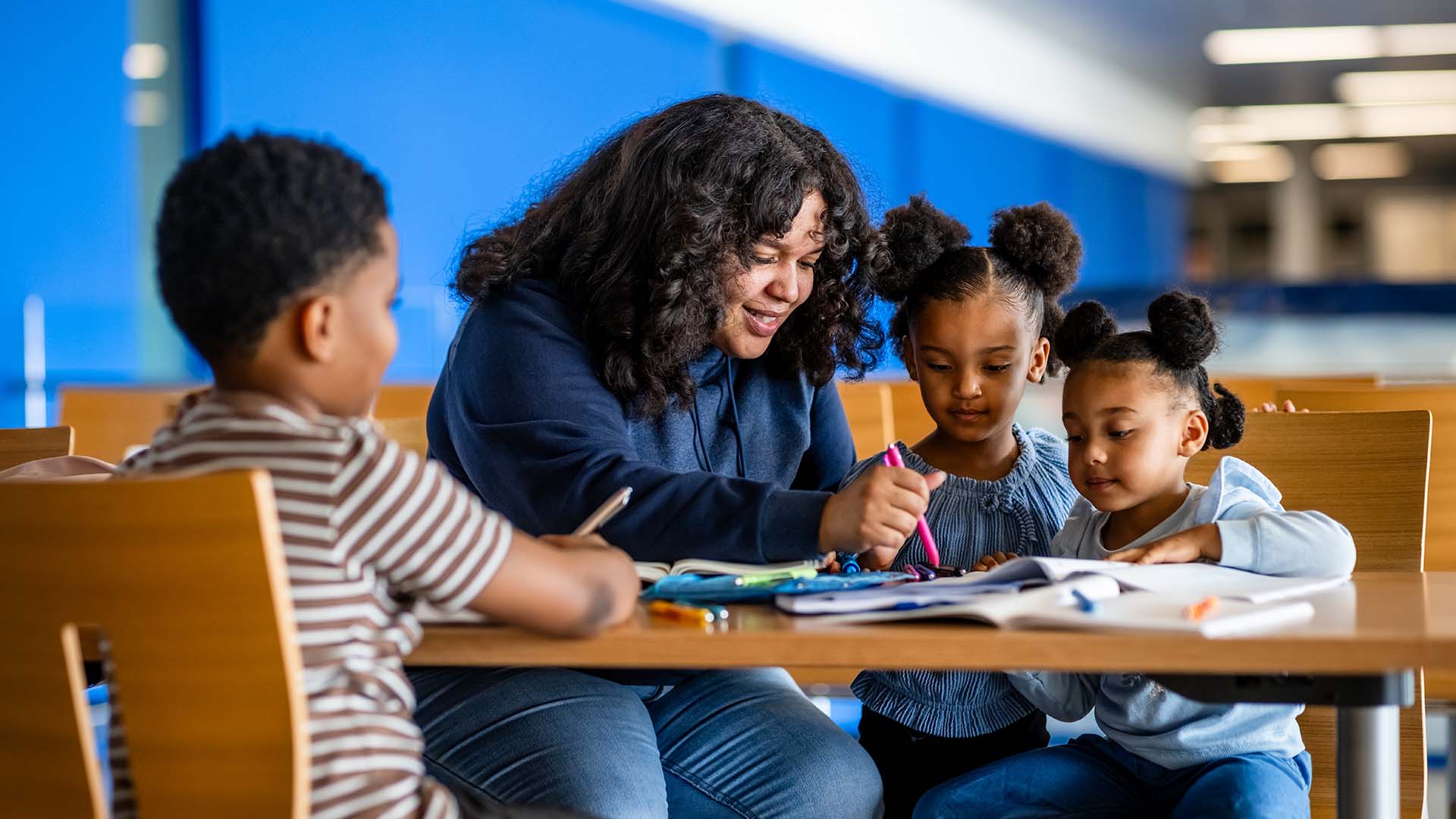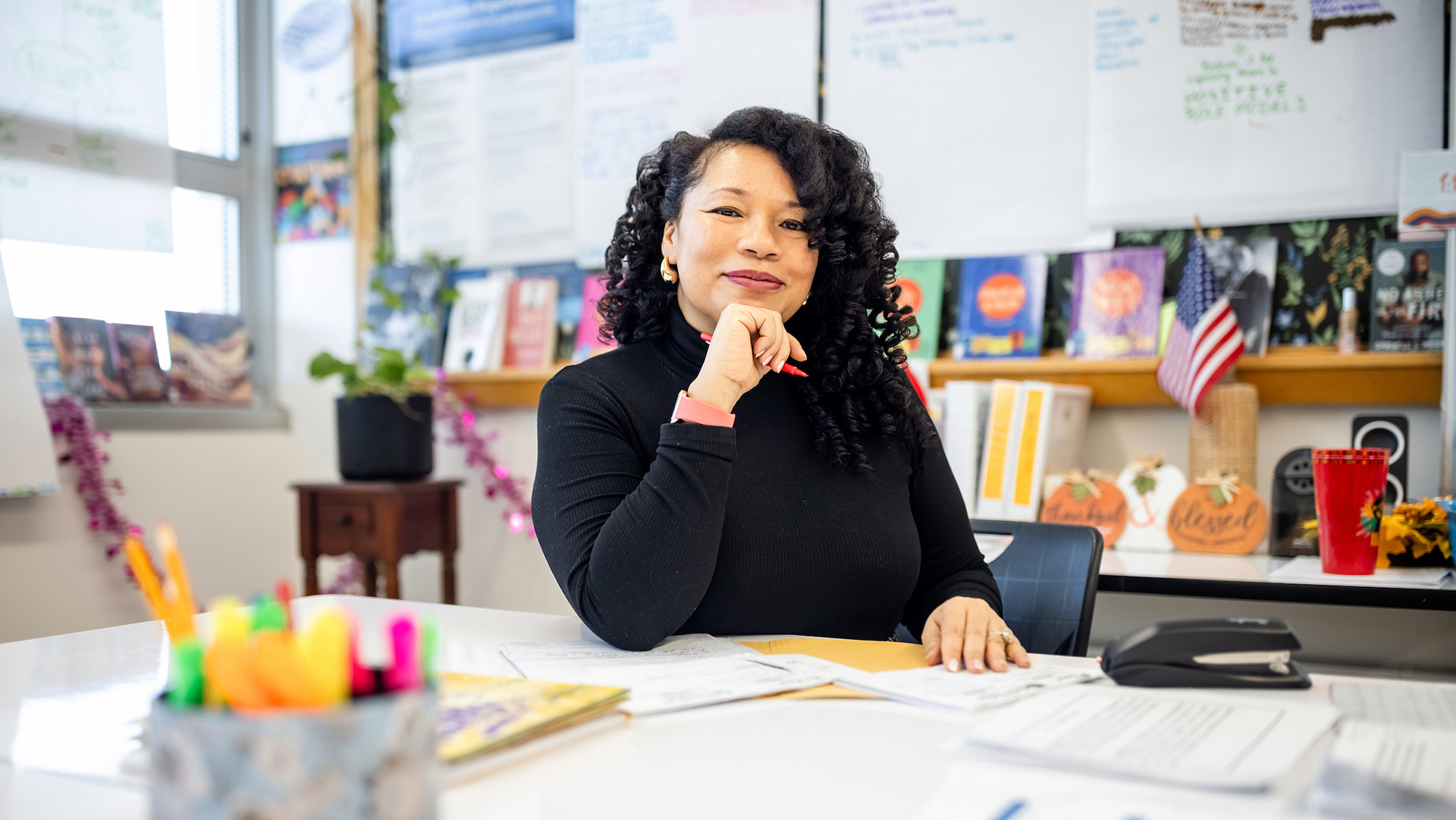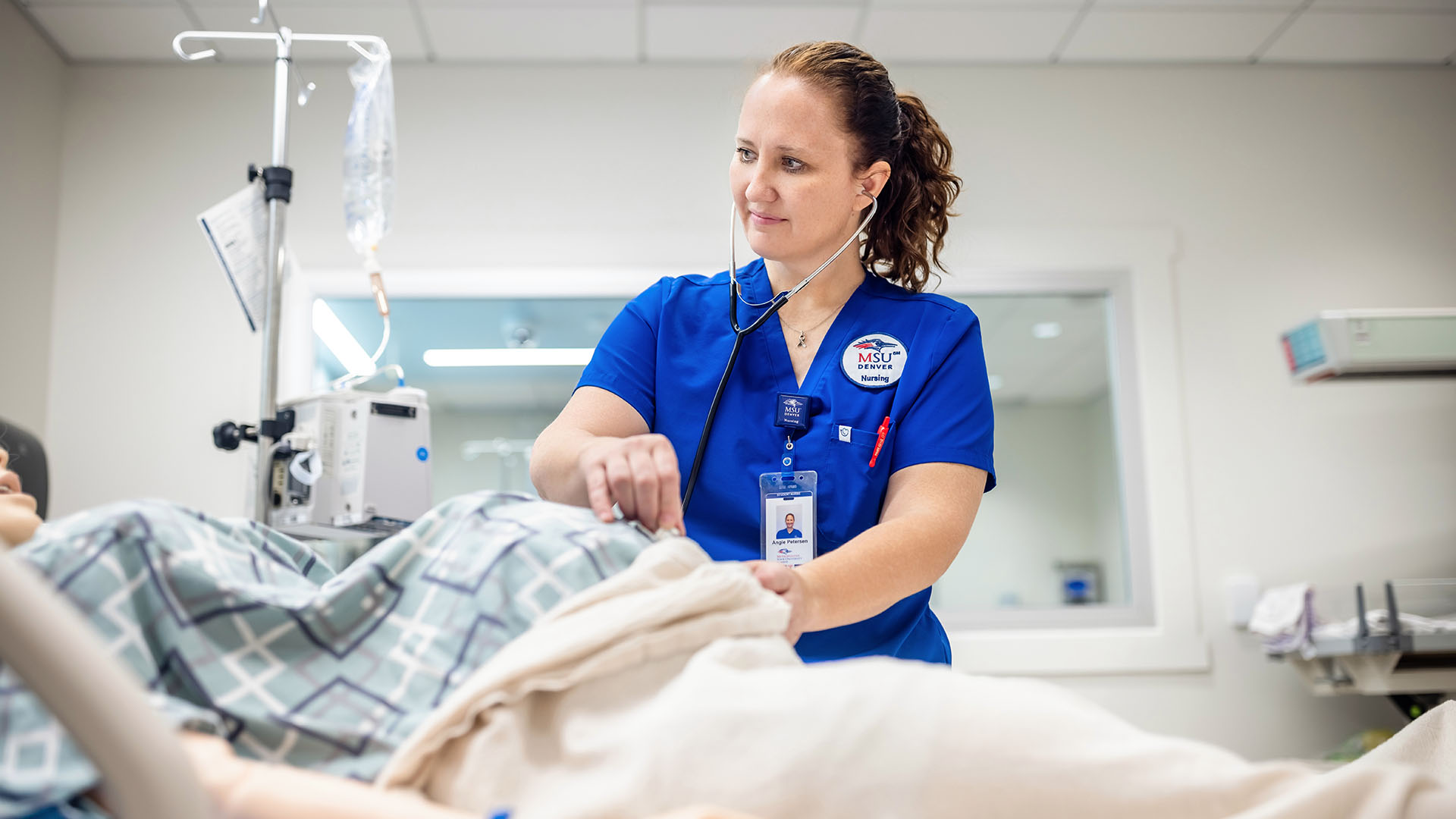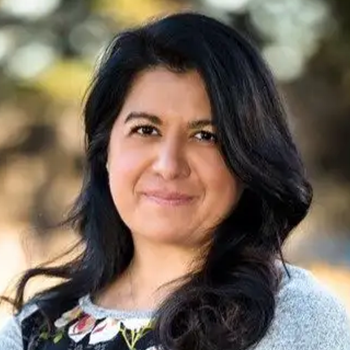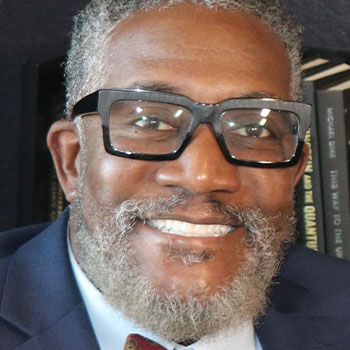Higher education’s day of reckoning
Recent college admissions scandals highlight the moneyed nature of acceptance — and MSU Denver's position of strength as an open-access institution.
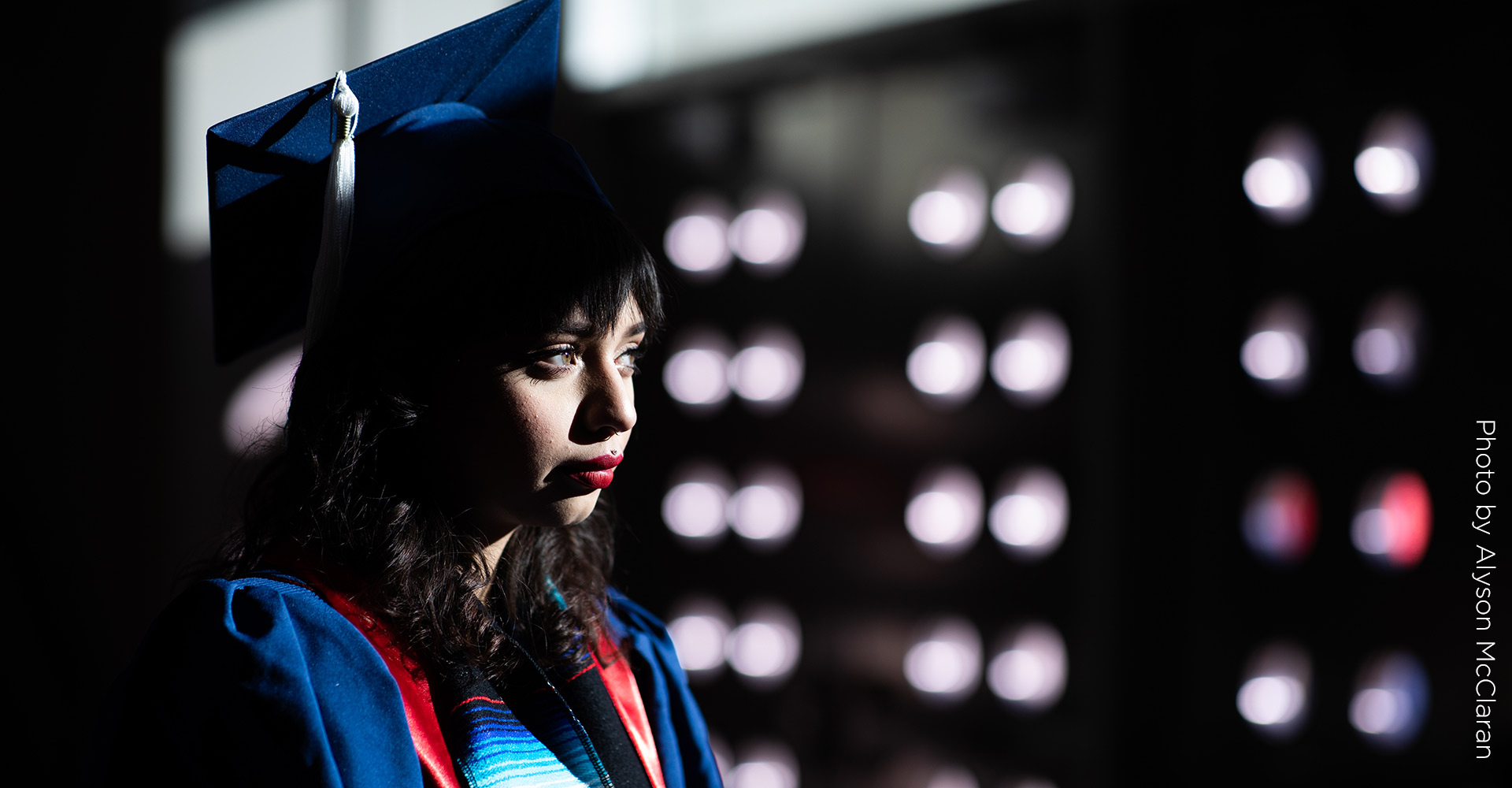
Fans of the seminal ’90s sitcom “Full House” are finding it hard to believe Aunt Becky is charged with conspiring to commit fraud and money laundering in the largest college admissions scam in U.S. history.
Actress Lori Loughlin and her fashion designer husband, Mossimo Giannulli, have pleaded not guilty to allegations that they paid $500,000 in bribes to get their two daughters into the University of Southern California.
“Desperate Housewives” star Felicity Huffman was also caught up in the scandal, dubbed Operation Varsity Blues by federal investigators. In May, she pleaded guilty to federal charges, admitting that she paid an SAT proctor to correct wrong answers on her daughter’s exam. She was sentenced to 14 days in prison, a fine and community service – for a felony.
The cases highlight a rapidly spreading fissure between those who have access to higher education as a socioeconomic vehicle of transformation and those who don’t.
“One of the biggest implications of the recent high-profile admissions scandal is that it has shined a spotlight on the very serious issue of wealth and privilege inequity in our country,” said Katia Campbell, Ph.D., president of Metropolitan State University of Denver’s Faculty Senate and professor of Communication Studies.
As the charges stemming from Operation Varsity Blues indicate, too many institutions are listening to money rather than students and employers. Now, higher education, long viewed as a means to advance one’s station in life, may be having its day of reckoning.
MSU Denver President Janine Davidson, Ph.D., sounded the alarm in September at TEDx MSU Denver 2019:
“When it comes to achieving the American dream, we’ve basically pulled the ladder up behind us on our own kids,” she said. “Then we turn around and tell them they have to do it the same way we did.”
Reclaiming the American Dream
What happens when we reimagine access to higher education? Success stories such as Ricardo Rocha’s.
Rocha is the founder and CEO of Bondadosa (Spanish for “kindly”), which combats food insecurity by delivering groceries to low-income neighborhoods in Denver. The company is one of only a handful of grocery-delivery services in the nation to serve people of advanced age and those with disabilities who use Supplemental Nutrition Assistance Program, or SNAP, benefits.

Entrepreneurial success – let alone a college diploma – wasn’t a given for Rocha, an undocumented immigrant who faced systemic challenges along a rocky route through Adams City High School.
He credits MSU Denver student support programs that later became a part of the University’s Center for Equity and Student Achievement for helping him get a second chance at academic success. He also got support from the College Assistance Migrant Program, which offers a one-year scholarship that helps students transition into college life.
The University gave him the opportunity to start over, he said.
“I felt like I could walk around campus here and see someone like me,” Rocha said. “I felt at home. At other places, I didn’t.”
Rocha’s shot at college and a successful career were possible thanks not only to MSU Denver’s focus on high-quality academic programs and student support services, but to the University’s status as a regional, modified open-access institution.
“If you grew up poor or went to one of those high schools that wasn’t exactly ‘college prep;’ if your parents didn’t have the money to send you to those Gucci SAT classes so you could get into those so-called elite universities, you can still come to MSU Denver,” Davidson said. “By passion, by purpose – and by law, as it happens – we will take you.”
But that access doesn’t mean compromising on the quality of education, according to Michael Benitez, the University’s vice president for Diversity and Inclusion. It means opening up MSU Denver’s world-class faculty and innovative academic programs to students, regardless of their socioeconomic background or how prepared they were for college.
“We’re eliminating barriers and starting where students are to support them throughout the college journey,” he said. “Some folks may come into the classroom more prepared than others; that doesn’t mean they’re smarter.”
And ensuring that everybody has access to a college education is more important today than ever. Research from the Social Security Administration shows that over a lifetime, individuals with a bachelor’s degree are expected to earn approximately $1 million more than those with just a high school diploma. A 2019 report from the Colorado Department of Higher Education found that those who graduate with a bachelor’s degree from a Colorado institution see their income grow on average by 62% in the decade after graduation, while the projected portion of jobs in the state that require postsecondary education in 2020 is anticipated to be 74% – tied for tops in the nation.
“It is just a fact that in today’s highly globalized, information-oriented complex economy and society, you need a higher degree to make it,” Davidson said.
Less money, more problems
Up until the passage of the G.I. Bill in 1944, higher education had largely been the domain of wealthy white men. The landmark legislation passed in the wake of World War II opened the doors of those institutions to the masses, transforming college into a positive socioeconomic vehicle and catalyzing an economic boom that lasted decades.
Over the years, though, the investment began to erode – specifically at the state level. In 1980, the State of Colorado paid 63.4% of tuition at state schools, with 36.6% paid by the student. In 2018, the state paid 29.1% of tuition, while students shouldered 70.9% of the cost.
“In Colorado, it’s flipped,” Davidson said. “That’s the reason college is so expensive today – the systematic disinvestment that we have made in our society.”
There’s another problem with the current business model of higher education in the U.S, Davidson said. The system of college rankings, which place substantial weight on an institution’s selectivity, creates an incentive to drive applications higher and acceptance rates lower.
Higher education is also facing what some college administrators call a “demographic apocalypse” – a dwindling number of high school graduates to fill the college recruitment pipeline.
Despite these systemic challenges, MSU Denver educates the greatest total number of undergraduate students in Colorado (18,031 in the 2019-20 academic year, or more than 95% of the University’s undergraduate population) while staying among the lowest tuition rates for four-year institutions.
According to Will Simpkins, Ed.D., MSU Denver vice president of Student Affairs, the Operation Varsity Blues scandal highlights three key areas of inequity: legacy admissions, athletics scholarships and donor admissions.
“MSU Denver is different, though – our status quo is responding to the needs of our community,” Simpkins said. “Because of our statutory mission, we’re always thinking about how we provide access to everyone.
“That’s what makes us unique.”
Reimagining merit
Employers routinely laud the work ethic of MSU Denver graduates.
And for good reason: The majority of MSU Denver students work full or part time while enrolled in classes. Because if you work hard, you get ahead, right?
Popular rhetoric tends to focus on words such as “hard work” and “merit” as concepts that theoretically lead to success, said MSU Denver Professor Campbell. The bootstrap narrative is foundational to the idea of using higher education to climb the socioeconomic ladder.
“The underlying and insidious message with ‘merit’ talk when it comes to college access is the implication that certain groups of students, namely students of color or working-class students regardless of race, lack merit and don’t truly earn admission,” she said.
The reality, according to Campbell, is that the system is simply designed to give certain demographics a significant advantage when it comes to getting ahead.
Whether it comes down to wealthy parents “donating” significant money to a university or investing in “specialists” to help their children get into the university of their choice, the bottom line is that wealth significantly smooths the path to college.
“The admissions scandal has finally shed public light on the fact that some students of wealthy parents don’t always earn their way to college acceptance and that there are a lot of factors that make college access a heck of a lot easier for them than for others,” Campbell said.
According to Benitez, the University’s vice president for Diversity and Inclusion, higher education needs to take a historical look at itself to understand how we got to where we are – and how MSU Denver’s mission is a competitive advantage, setting up the school for tomorrow’s success.
“Given the economic landscape combined with unnecessary and ongoing cost inflation across higher education, schools are becoming more and more expensive,” he said. “That unaffordability means we can be the place of preeminence for both quality and where students can come regardless of their preparatory background.”
Aunt Becky’s legal troubles notwithstanding, Operation Varsity Blues has cast a light on the high-stakes moneyed nature of college as the vehicle for socioeconomic transformation. And though the scandal has forced some institutions to start looking into their practices – or at least pay lip service to doing so – access has been at the heart of MSU Denver’s mission since Day One.
“It’s going to take all of us to toss that ladder back down for the next generation; it’s going to take all of us to ensure that the American dream isn’t just a dream but a possibility,” Davidson said.
“That’s worth fighting for.”


